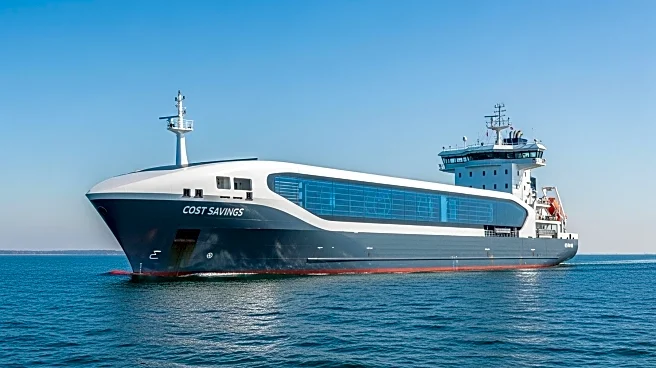What is the story about?
What's Happening?
Maersk has reached the halfway point in a significant retrofit program aimed at reducing fuel consumption and emissions across its chartered fleet. The initiative involves over 1,500 projects across 200 vessels, in collaboration with 50 shipowners. The program includes replacing propellers and bulbous bows to enhance hydrodynamic efficiency, installing auxiliary engine waste heat recovery systems, and upgrading cargo-carrying capacity. These efforts are part of Maersk's strategy to achieve a 35% reduction in scope 1 greenhouse gas emissions by 2030, compared to 2022 levels.
Why It's Important?
This retrofit program is crucial for Maersk as it seeks to enhance the competitiveness of its fleet while addressing environmental concerns. By improving fuel efficiency and reducing emissions, Maersk not only cuts operational costs but also aligns with global sustainability goals. The initiative reflects a broader industry trend towards greener shipping practices, which could influence regulatory standards and consumer expectations. The success of this program could set a precedent for other shipping companies, potentially leading to widespread adoption of similar measures.
What's Next?
Maersk plans to complete an additional 1,000 projects by 2027, continuing its collaboration with shipowners to implement these changes. The company is also exploring the conversion of vessels to dual-fuel methanol capabilities, as demonstrated by the recent conversion of the Maersk Halifax. As the program progresses, Maersk will likely monitor the impact on operational efficiency and emissions, potentially adjusting strategies to maximize benefits. The shipping industry will be watching closely to see how these efforts influence market dynamics and regulatory developments.















